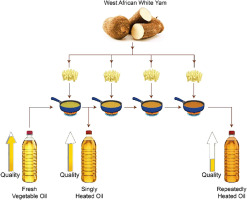
Are Vegetable and Seed Oils “Harmful”? Distinguishing Between Truth and Myths
From trending TikToks to contentious dietary books, vegetable and seed oils are currently under the spotlight—and not always in a positive light. Critics label these oils as “toxic waste” or “the notorious eight,” claiming they are a significant factor behind various contemporary health issues, such as persistent inflammation, weight gain, and mental health challenges.
But is this image justified? Or could vegetable oils simply be mischaracterized? As is common with many nutrition discussions, the truth is much more complex than social media snippets imply. Let’s explore the scientific evidence to clarify misconceptions and empower you to make better health decisions.
What Constitutes Vegetable and Seed Oils?
The phrase “vegetable oils”—often used synonymously with “seed oils”—denotes oils derived from the seeds of plants that naturally contain minimal fat. Some of the most prevalent vegetable oils are:
- Canola
- Corn
- Soybean
- Sunflower
- Safflower
- Grapeseed
- Sesame
This classification excludes oils extracted from the flesh of fruits such as olives, avocados, or coconuts, which are often viewed as less processed or “healthier.”
What is the Production Process of These Oils?
Unlike fatty fruits such as olives, seeds undergo considerable processing to extract oil. The production steps include:
- Mechanical pressing to obtain the initial oil
- Refining with chemical solvents like hexane to enhance yield
- Deodorizing through high temperature (approximately 400°F)
Throughout the refining process, valuable nutrients like polyphenols may be diminished, and small quantities of trans fats—associated with negative health effects—can be generated. However, it is important to note that in 2018, the U.S. FDA prohibited artificial trans fats in food manufacturing, substantially decreasing their occurrence in the food system.
Why Is There Debate Around Vegetable Oils?
<pCritics of seed oils contend that:
- They’re heavily manufactured and absent from traditional human diets
- They are high in omega-6 polyunsaturated fats believed to promote chronic inflammation
- They frequently appear in ultra-processed foods associated with weight issues, cardiovascular diseases, and additional health problems
Conversely, advocates assert that not all seed oils are alike and that specific ones, like canola and sunflower, offer heart-healthy fats that—when utilized appropriately—can be part of a nutritious diet.
An In-Depth Comparison: Popular Oils
Extra Virgin Olive Oil (EVOO)
- High in monounsaturated fats (MUFAs)
- Rich in polyphenols and antioxidants
- Well-researched and associated with health advantages such as a reduced likelihood of heart disease, diabetes, and cognitive decline
- Highly recommended, particularly for low to moderate heat cooking
Expeller-Pressed Canola Oil
- Manufactured without chemical solvents
- Contains MUFAs and omega-3s (ALA)
- More cost-effective than EVOO and has a neutral flavor
- A health-neutral to slightly advantageous choice in moderate quantities
Refined Canola and Other Vegetable Oils
- Processed using heat and solvents
- Lower in beneficial nutrients
- Contain small amounts of trans fats and are more prone to oxidation
- Best used sparingly, especially outside whole food contexts
Butter
- Rich in saturated fat, which may elevate LDL (“bad”) cholesterol levels
- Does not include the milk fat globule membrane found in many dairy products, increasing its atherogenic potential
- Less processed than refined oils but should still be consumed in moderation